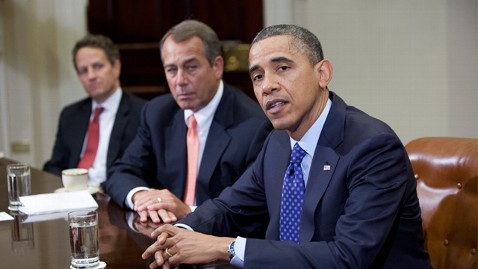HONG KONG: Asian markets rose Monday as dealers cheered an improvement in the US unemployment rate and another batch of figures indicating China's economy is emerging from a long slowdown.
Investors appeared unmoved by figures confirming Japan's economy shrank in the three months to September, as traders keep their sights on Sunday's general election, which is expected to see Yoshihiko Noda's government ousted.
Tokyo rose 0.25 per cent by the break, Hong Kong added 0.58 per cent, Shanghai was 0.26 per cent higher, Sydney gained 0.26 per cent and Seoul climbed 0.13 per cent.
Washington on Friday unveiled figures showing the economy added 146,000 jobs in November, up from a revised 138,000 in October. Expectations had been for just 80,000 jobs to be added.
The Labor Department also said the unemployment rate dropped to 7.7 per cent last month, its lowest since December 2008, from 7.9 per cent in October.
However, the data were tempered by a University of Michigan consumer sentiment index, which declined to 74.5 from November's five-year-high of 82.7.
Traders are also nervous about the lack of progress on Capitol Hill in talks aimed at averting the fiscal cliff of tax hikes and spending cuts due to take effect on January 1 and which would likely tip the economy into recession.
Wall Street was mixed, with the Dow up 0.62 per cent and the S&P 500 gaining 0.29 per cent but the Nasdaq lost 0.38 per cent.
In China the government said Sunday that November had seen a double-digit increase in production at factories, workshops and mines for the first time since March.
Figures on retail sales, fixed asset investment and inflation reinforced the view that the economy is finally on the mend after seven straight quarters of slowdown in growth.
"Overall it's a quite strong set of numbers, supporting our view of rebounding GDP growth," said Lu Ting, China economist with Bank of America Merrill Lynch.
Figures released on Monday showed exports rose 2.9 per cent in November, while imports were flat.
On currency markets the euro bought $1.2904 and 106.40 yen in early Asian trade, down from $1.2928 and 106.64 yen in New York Friday afternoon. The dollar bought 82.47 yen, from 82.46 yen.
The yen has come under pressure in recent weeks after polls were called for December 16. Noda and his Democratic Party of Japan are expected to be beaten by the Liberal Democratic Party, headed by former prime minister Shinzo Abe.
Abe has promised to push a more aggressive monetary easing policy to kickstart the economy.
Oil prices were higher, with New York's main contract, light sweet crude for delivery in January, gaining 29 cents to $86.22 a barrel and Brent North Sea crude for January delivery adding 39 cents to $107.41.
Gold was at $1,705.60 at 0250 GMT compared with $1,696.90 late on Friday.
- AFP/ck










